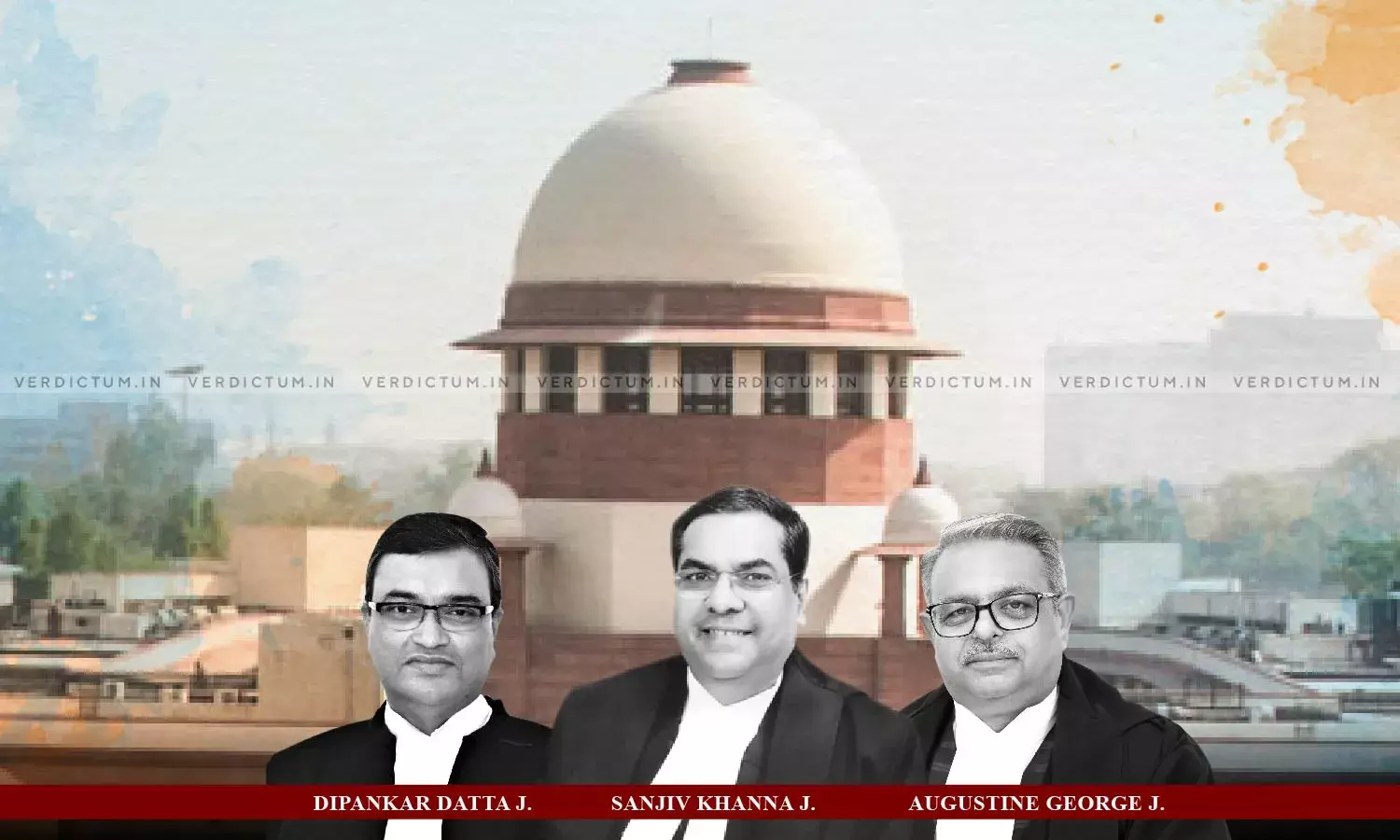Supreme Court Refuses To Stay Appointment Of Election Commissioners Under The New Law Which Excludes CJI From The Panel, Matter To Be Heard On March 21

The Supreme Court, today, refused to stay the appointment of new Election Commissions under the new law i.e. the Chief Election Commissioner and other Election Commissioners (Appointment, Conditions of Service and Term of Office) Act, 2023 which excludes the Chief Justice of India from the selection panel and adjourned the matter to March 21, 2024.
The Bench comprising Justice Sanjiv Khanna, Justice Dipankar Datta and Justice Augustine George Masih remarked “Normally, we do not stay, by an interim order, a legislative... Please file an application and then we will examine it.”
Senior Advocate Kapil Sibal told the Court at the outset that new Election Commissioners have been appointed under the new law that is under challenge.
Senior Advocate Vikas Singh referred to the landmark judgment in the matter of Anoop Baranwal v. Union of India and submitted that if a judgment has been delivered it cannot be upturned by law. He told the Court that the Court has in several instances stayed the operation of such laws. He also told the Court that the meeting for appointment was preponed by one day.
However, the Court refused to pass any interim order and adjourned the matter.
On March 13, 2024, Advocate Prashant Bhushan mentioned an application before the Bench headed by Justice Sanjiv Khanna which challenges the constitutional validity of the Chief Election Commissioner and other Election Commissioners (Appointment, Conditions of Service and Term of Office) Act, 2023 particularly its Section 7 as being violative of Article 14 of the Constitution of India and sought to stay on the implementation of the Act.
An application was filed on March 11, by Advocate Prashant Bhushan on behalf of the Association for Democratic Reforms challenging the Act, 2023 is violative of Article 14 and for overruling the Constitution Bench decision of this Hon’ble 2 Court in Anoop Baranwal v. Union of India without altering the basis.
The Petitioner in its plea stated, “Further, the Election Commission is not only responsible for conducting free and fair elections but it also renders a quasi-judicial function between the various political parties including the ruling government and other parties. In such circumstances, the Selection Committee which is ex facie dominated and controlled by the members from executive i.e. Prime Minister and Union Cabinet Minister (to be nominated by the Prime Minister) renders the selection process vulnerable to manipulation as it gives unfettered discretion to the ruling party to choose someone whose loyalty to it is ensured.
It was also mentioned by the Petitioner that on February 14, 2024, Anup Kumar Pandey, Election Commissioner, demitted his post as he had completed his term, leading to a vacancy. Without any reason or explanation on 10th March 2024, the Government of India issued a notification stating that Arun Goel, Election Commissioner has resigned from his post and the same has been accepted by the Hon’ble President of India. Therefore, there are two posts of Elections Commissioners lying vacant and the Election Commission is functioning at less than the envisioned capacity of three official posts.
The Petitioner sought to stay on the implementation of Section 7 of the Act and directions for the Central Government to appoint the vacant positions.
Earlier, the Supreme Court had refused to stay the law while issuing notice in a batch of petitions, where the lead case was preferred by Congress Leader Jaya Thakur.
Previously, on March 2, 2023, the Constitution Bench of the Apex Court in Anoop Baranwal v. Union of India held that the appointment of Chief Election Commissioner and other Election Commissioners shall be made by the President on the advice of a committee comprising the Prime Minister, leader of Opposition in Lok Sabha (or leader of the largest opposition party in Lok Sabha) and the Chief Justice of India.
The Supreme Court observed that to strengthen the democratic processes, the Election Commission needs to be independent and demonstrate transparency and accountability and that the Election Commission should be fearlessly, and robustly independent and such independence would be undermined if the selection process is done by an executive who has a critical stake in the electoral process.
Cause Title: Association For Democratic Reforms v. Union of India (W.P.(C) No. 87 of 2024) and Dr. Jaya Thakur Vs Union Of India (W.P. (C) No. 14 of 2024).

